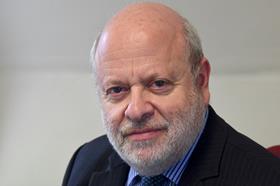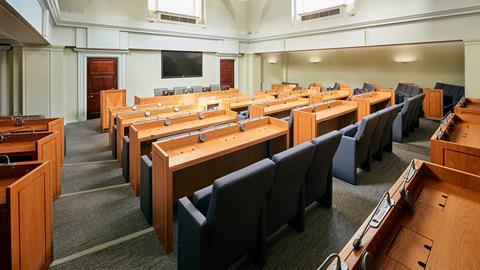Someone wrote to me this week and said that there was next-to-no coverage in the Gazette or in messages from the Law Society about the work of the Society Council.

Most readers quickly turn the page or click on the next story at the mere thought of an article about the Council. It is part of the behind-the-scenes machinery, along with committees and the staff. It must function well, but should it be a focus of attention?
On the one hand, the Council is the elected arm of the Society, comprising representatives who are voted in to serve as the voice of the profession, from every part of England and Wales, and from abroad, across major practice areas and the principal demographics. Citizens are interested in debates in parliament, and so it should follow that solicitors are interested in debates in the Council. How can the Council be held to account if no one knows what it does?
It would be good for the profession to know, for instance, the passion of the engagement among Council members on the relationship between the profession and the Solicitors Regulation Authority, and the extent to which the Society can hold the SRA to account within the constraints of the settlement under the Legal Services Act 2007 and the subsequent Internal Governance Rules (IGR). All this has, of course, become even more important following the Axiom Ince debacle and the yet-to-be-published report into the failures at SSB Law.
However, there are rules, and plenty of them. The IGR are just one example, but as importantly, there are the Charter, general regulations and byelaws which set the framework for the Council and its proceedings. There are also rules around confidentiality of discussions, often challenged by Council members keen to tell their constituents more about what is going on.
The Society’s website outlines some of the necessary work of the Council:
- representing the views of members;
- setting the practising certificate fee and compensation fund contributions;
- approving the Society’s annual business plan and budget;
- determining the profession’s position on significant policy issues;
- making changes to the rules, some of which were listed above; and
- fulfilling the Society’s residual functions as an approved regulator, which is where some of the discussions on the SRA and Axiom Ince come into the picture.
There are also parts of the agenda whose detail would be of little interest to constituents, but are necessary all the same. Every organisation I know devotes parts of its time to its own internal functioning. And every organisation also struggles to ensure that this time is kept under control, so that important policy issues can receive the necessary attention. If it is a member organisation, members are normally never interested in discussions about internal structure, but such discussions are nevertheless necessary to make the organisation more efficient.
In the Law Society’s case, the question is how it can efficiently represent and promote the views of a profession which stretches from the magic circle at one end (responsible for the profession appearing prominently in the government’s recent industrial and trade strategies as shining examples of the UK’s economic strength) to struggling legal aid firms at the other end (serving the neediest under harsh conditions, including unacceptably low pay rates and the recent catastrophic hack of the Legal Aid Agency). Within this stretch, there is a burgeoning in-house community, now a quarter of the profession.
And it is not just the type of practice that poses a challenge, but also the area of law. Solicitors practise in every area, and there are regularly new laws, new consultations, new reports. Of course, there should be a focus on what affects the larger number, but niche areas can bring threats to the rule of law or to the reputation of the profession as well – the recent fuss over SLAPPs is a good example.
Part of the Council’s role is to set the parameters for how the Society deals with this breadth and complexity, while still staying focused on its main missions, including the role of solicitors in access to justice and the rule of law. It is not easy, and there are always those who feel that their area of interest is not being given sufficient resources. There needs to be discipline to ensure that the Society does not wander off from its agreed purpose.
Which committees do we need and what work should they do? How is policy signed off and by whom? How do you reconcile democracy and a broad church with consistency of messaging?
In the broadest terms, this is what the Council has been up to recently. If you want more detail, I will have to consult the many, many rules.
Jonathan Goldsmith is Law Society Council member for EU & International, chair of the Law Society’s Policy & Regulatory Affairs Committee and a member of its board. All views expressed are personal and are not made in his capacity as a Law Society Council member, nor on behalf of the Law Society
































3 Readers' comments